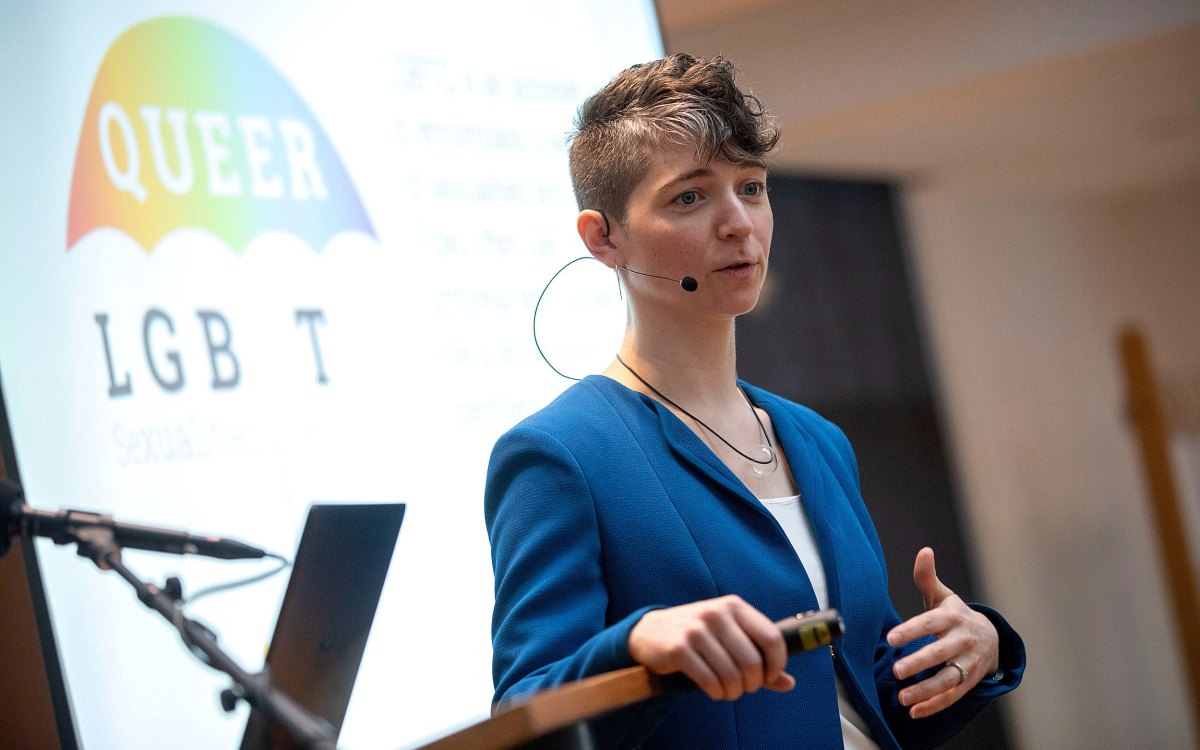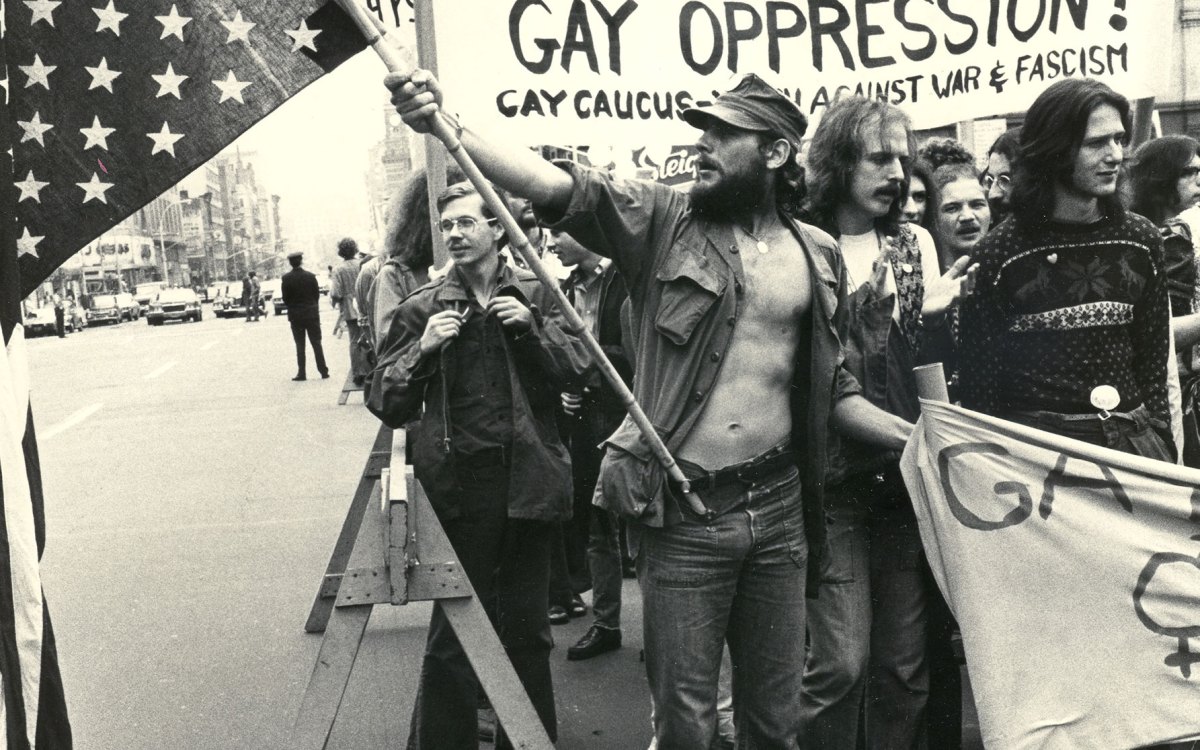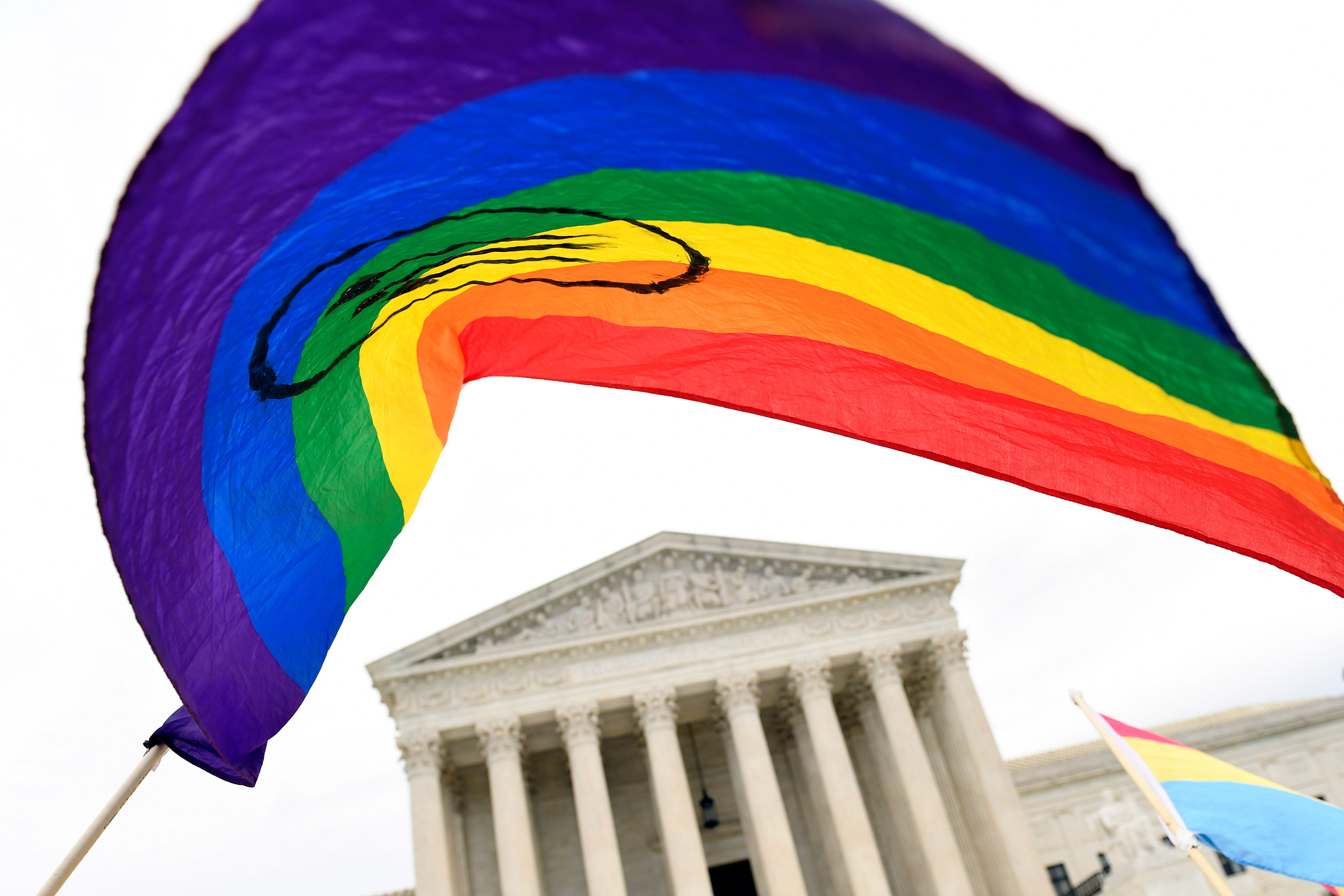
In a 6-3 decision, the Supreme Court on Monday said federal law, which prohibits discrimination based on sex, should be understood to include sexual orientation and gender.
AP File Photo/Susan Walsh
Harvard experts call ruling on LGBT rights a landmark
Supreme Court says workplace protections fall under Civil Rights Act of 1964
Harvard faculty members in law and gender issues declared Monday’s Supreme Court ruling protecting gay and transgender workers a landmark for LGBT rights.
“The scope of this is extraordinary,” said Michael Bronski, a professor of the practice in media and activism and a longtime LBGT advocate. “I would say it’s a bigger decision than Obergefell v. Hodges [which legalized same-sex marriage in 2015]. That was a nondiscrimination decision that affected a specific group of people, those who wanted to get married. Whereas this is a nondiscrimination decision that affects 9 million people.”
The 6-3 decision in the case of Bostock v. Clayton County affirmed that Title VII of the 1964 Civil Rights Act, which forbids job discrimination based on a person’s race, religion or sex, also covers sexual orientation and gender identity.
The biggest surprise — and for some, the most delicious irony — was that conservative Justice Neil Gorsuch, J.D. ’91, President Trump’s first appointee to the high court, not only voted with the majority, but authored the decision. Gorsuch was joined by Justices Ruth Bader Ginsburg; Stephen Breyer, LL.B. ’64; Sonia Sotomayor; Elena Kagan, J.D. ’86; and Chief Justice John Roberts ’76, J.D. ’79. Trump’s other appointee, Brett Kavanaugh, along with Justices Samuel Alito and Clarence Thomas, voted against. Gorsuch wrote, “It is impossible to discriminate against a person for being homosexual or transgender without discriminating against that person based on sex.”
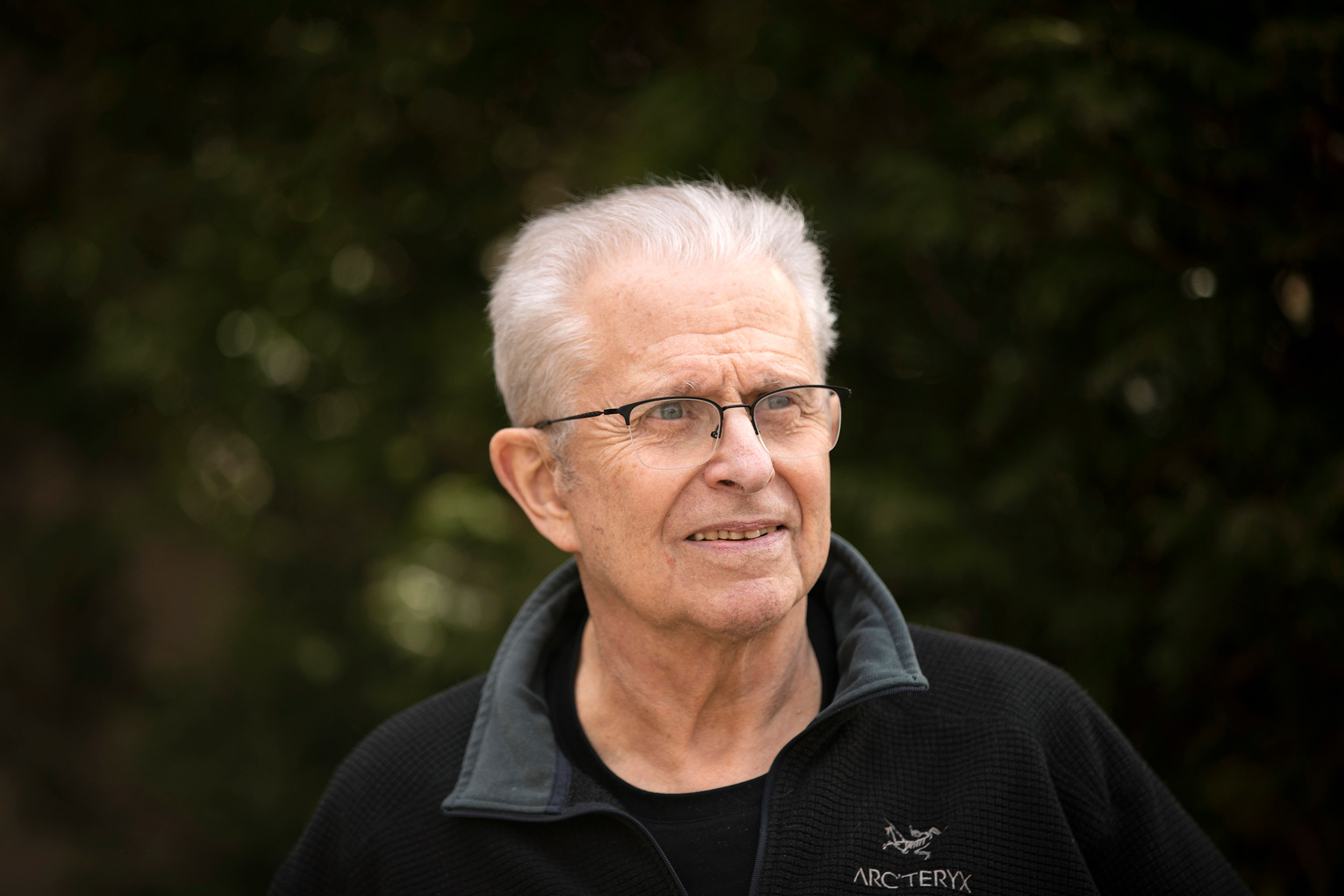
“It’s a very conservative approach in some ways,” Bronski said. “He wrote that anyone firing an individual for being gay or transgender is firing them for actions that would not have been questioned in members of a different sex. So you can’t discriminate against someone for being a man or a woman.”
“It’s based in textual reasoning and rather persuasive in those terms,” said Gerald Neuman, co-director of the Human Rights Program at HLS. “It is written in a way that may be more persuasive to members of the public. The people who are in favor of this kind of discrimination, who are vehemently opposed to this interpretation — I don’t think it will be persuasive to them. But people who might say, ‘I’m not in favor of this kind of discrimination, but I don’t think that the law itself addresses it’ … could be persuaded.”
In a series of tweets, HLS Professor Laurence Tribe also praised Gorsuch’s work. “Today’s 6-3 triumph for the rights of homosexual and transgender people is a victory for justice and for reading laws as they were written rather than as some assumed or intended them to operate,” he wrote. “Justice Gorsuch conducted a master class in interpreting legal texts when he patiently explained why the unexpressed intentions of a law’s authors or the conversational conventions of its users cannot be permitted to trump its unambiguous meaning. … Of course progressives don’t always welcome textual analyses and might worry that this Gorsuch majority will complicate their lives in other contexts. To be sure, this remains a very conservative Court. But I say: Be glad for just outcomes when they come your way.”
According to Timothy McCarthy, the ruling allays some fears that the LBGT community had about a post-Anthony Kennedy Supreme Court. “Any landmark ruling is always on some level a surprise,” said McCarthy, a lecturer on history and literature, public policy, and education. “Since Justice Kennedy [often a swing voter] played a longstanding role as majority opinion writer for many of the landmark LBGT decisions, there was great concern that his departure would place our lives in peril. Justice Gorsuch had clerked for Kennedy, yet he is also staunchly conservative and a Trump appointee. So yes, it is a huge ruling. But it is also a limited ruling, in the sense that most Supreme Court rulings are. People can’t be denied a job because of their sexual and gender identity. But they can be denied access to health care, housing and other rights.”
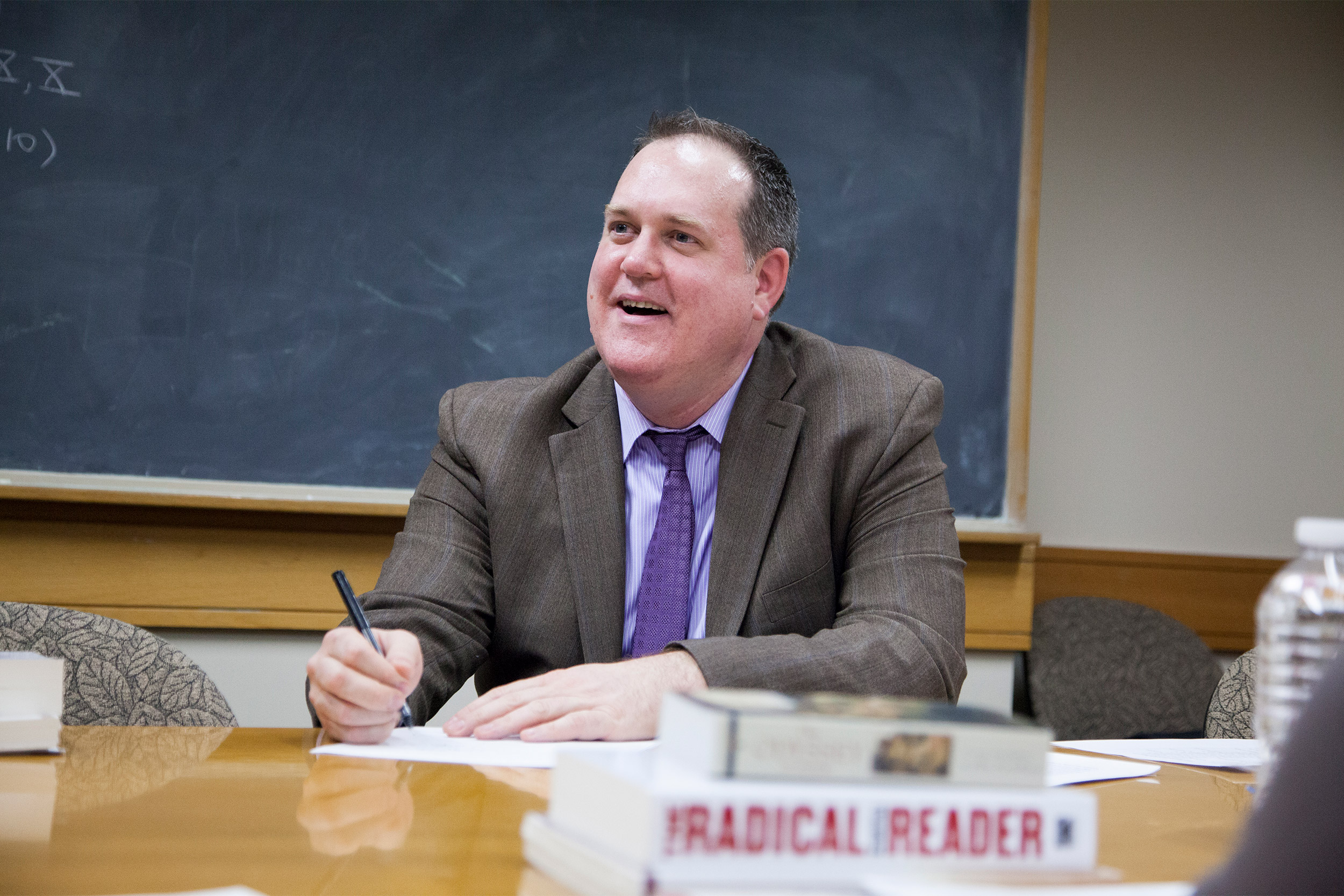
McCarthy and Bronski both note, however, that the decision was hardly unanimous. Alito’s dissent was particularly strong-worded, calling the decision “preposterous” and alleging, among other things, that a woman who has suffered abuse might be traumatized by the bathroom presence of a trans woman. Bronski said, “It’s interesting that in so many of these battles, bathrooms become the flashpoint. The anxiety about bathrooms seems to be great.” McCarthy added, “It is an old canard that goes back to arguments about public school teachers, saying that people outside gender norms are predators by nature.”
Further challenges, McCarthy said, are likely to come on the basis of religious freedom. “Although the court didn’t tackle this directly, it does tie in with the culture war landscape. If I believe these people are unnatural or ungodly, I may claim I have the right to not bake them a cake or to deny them a marriage license. I can see it shaping up to become a ‘Celebrity Death Match’ between 1st Amendment claims of religious liberty and 14th Amendment claims of equal citizenship.”



